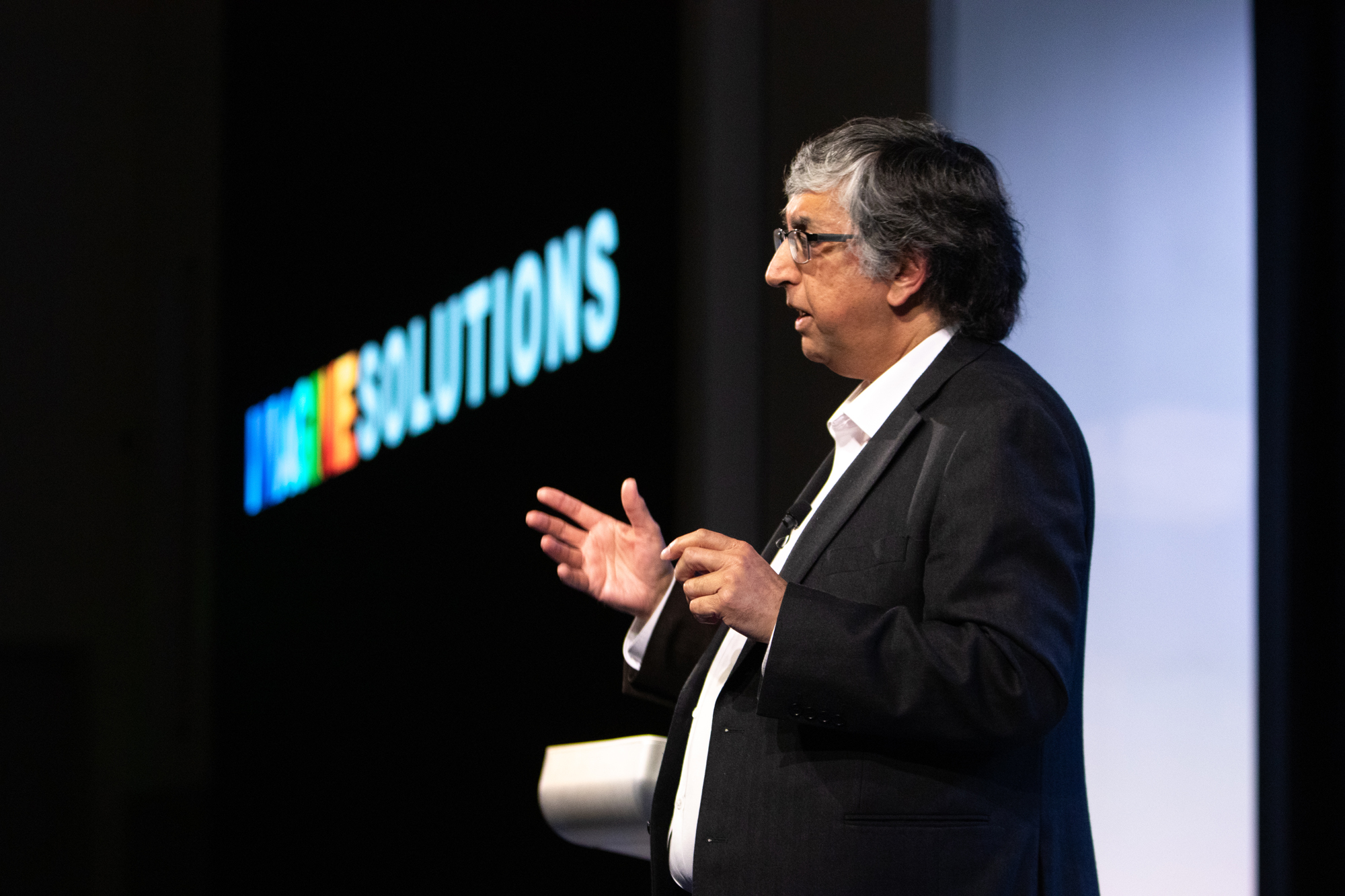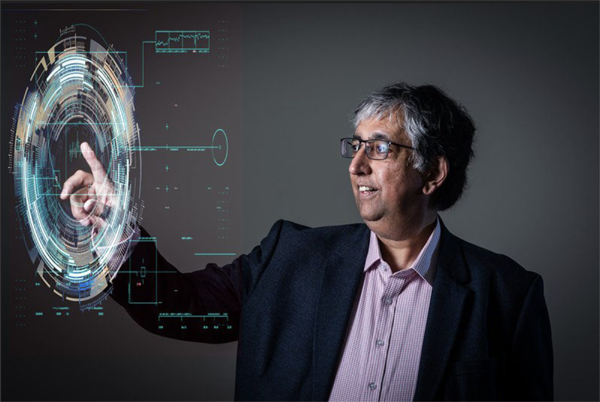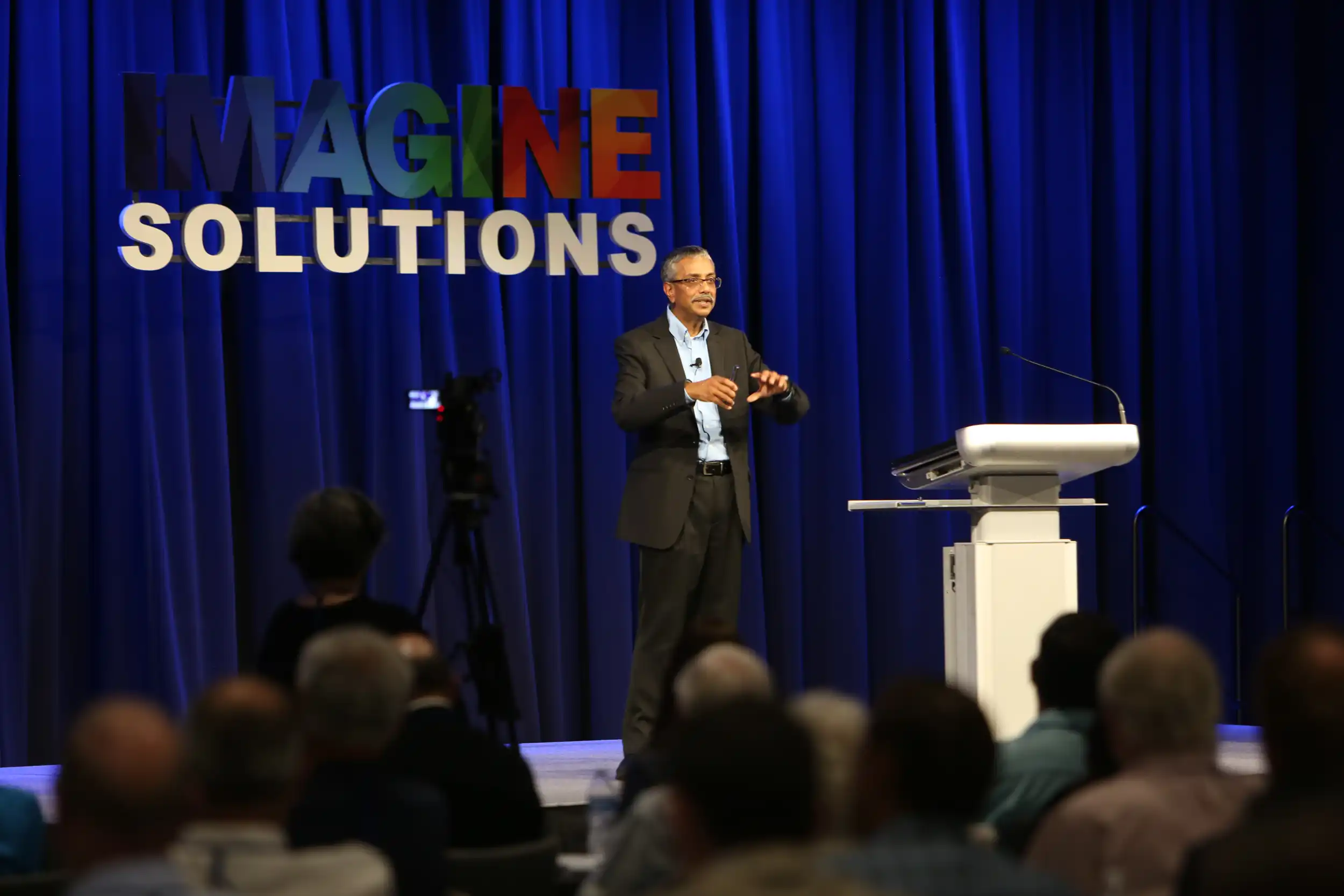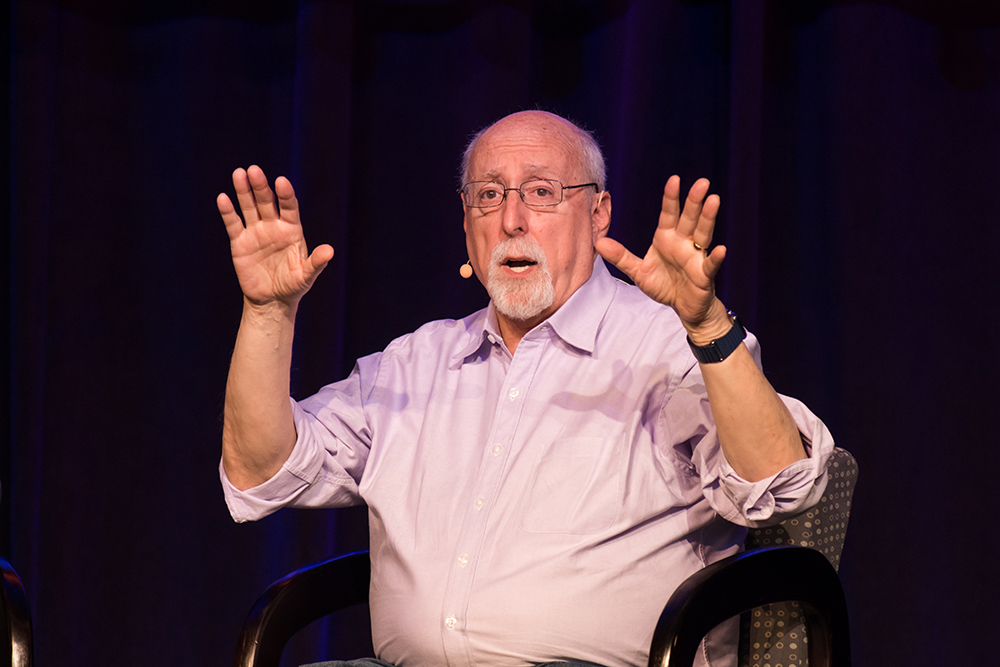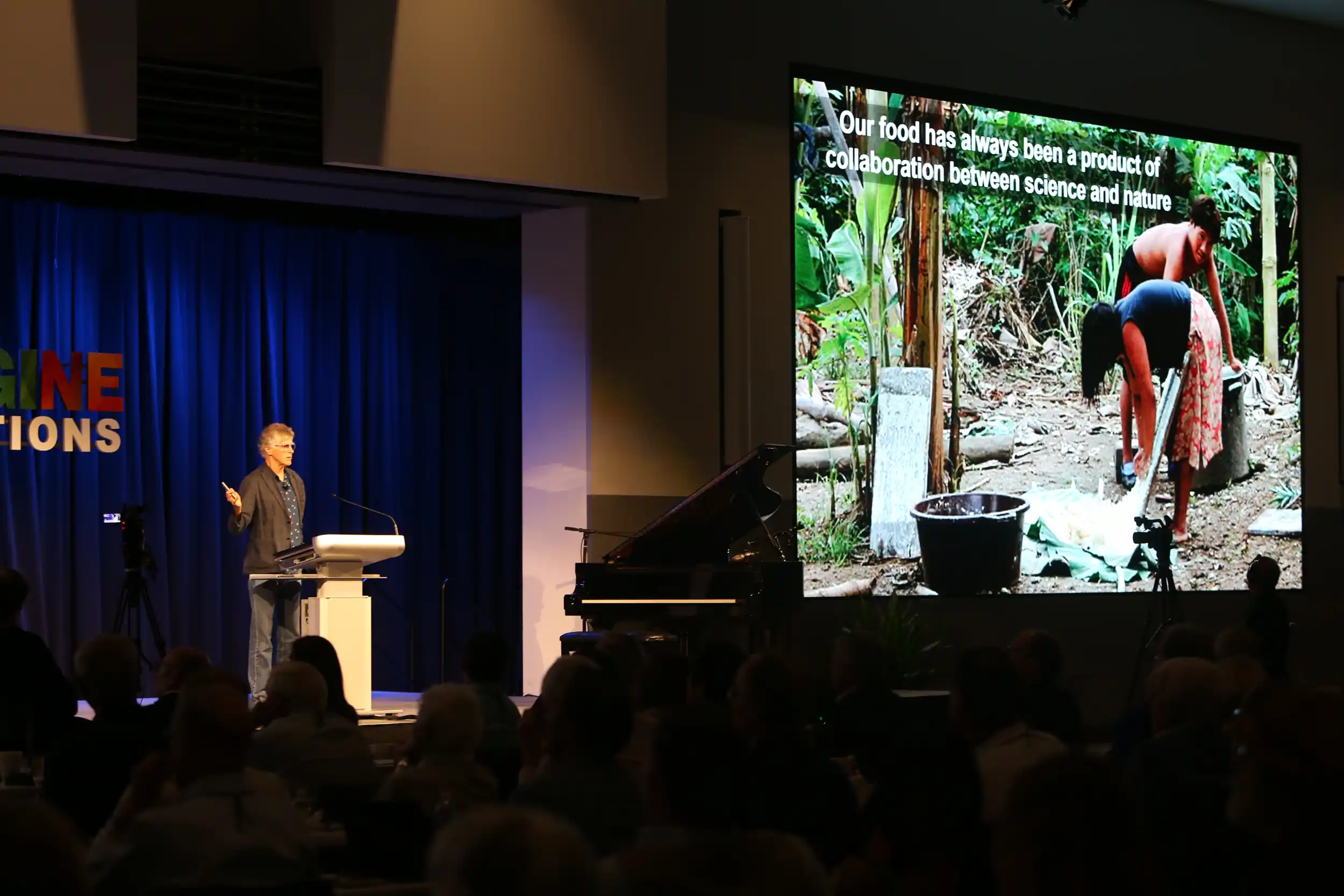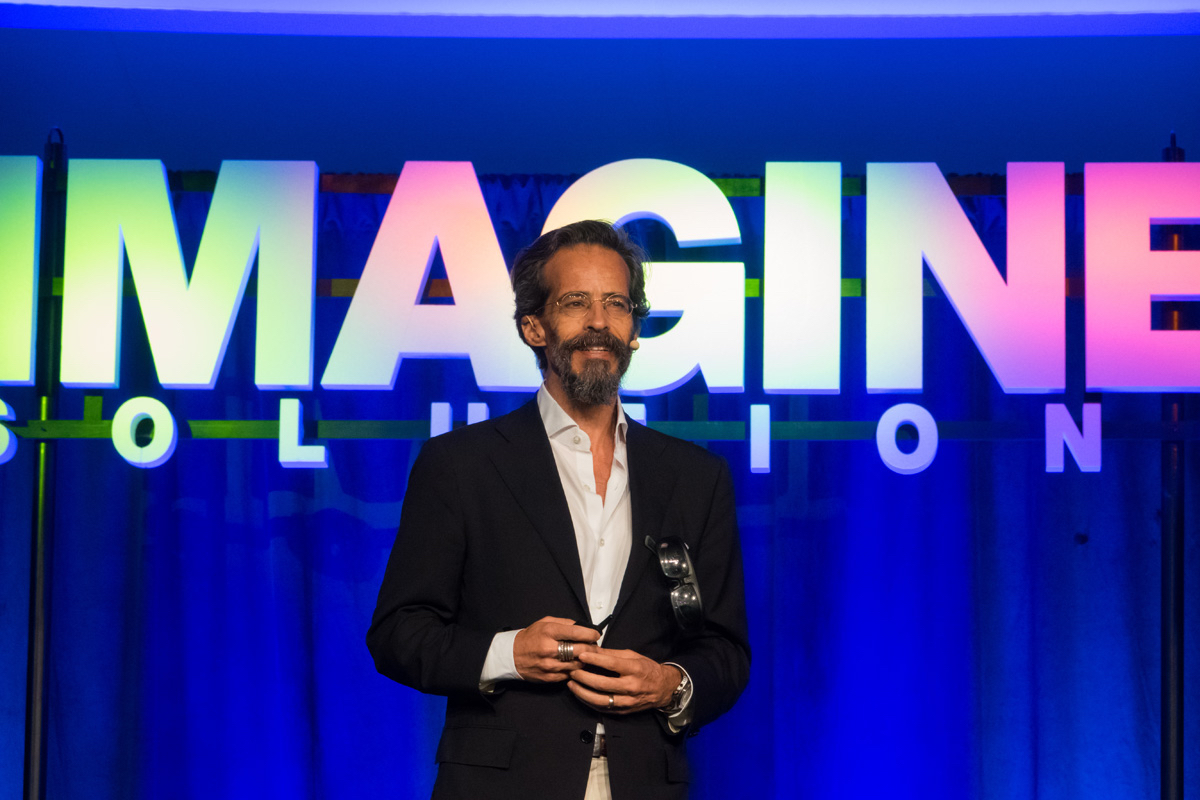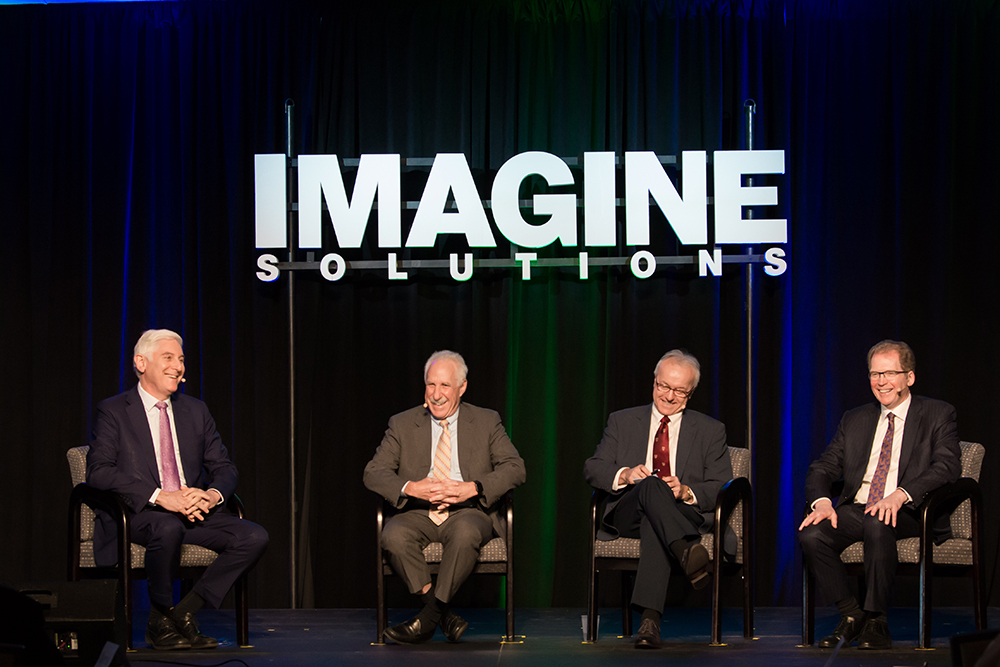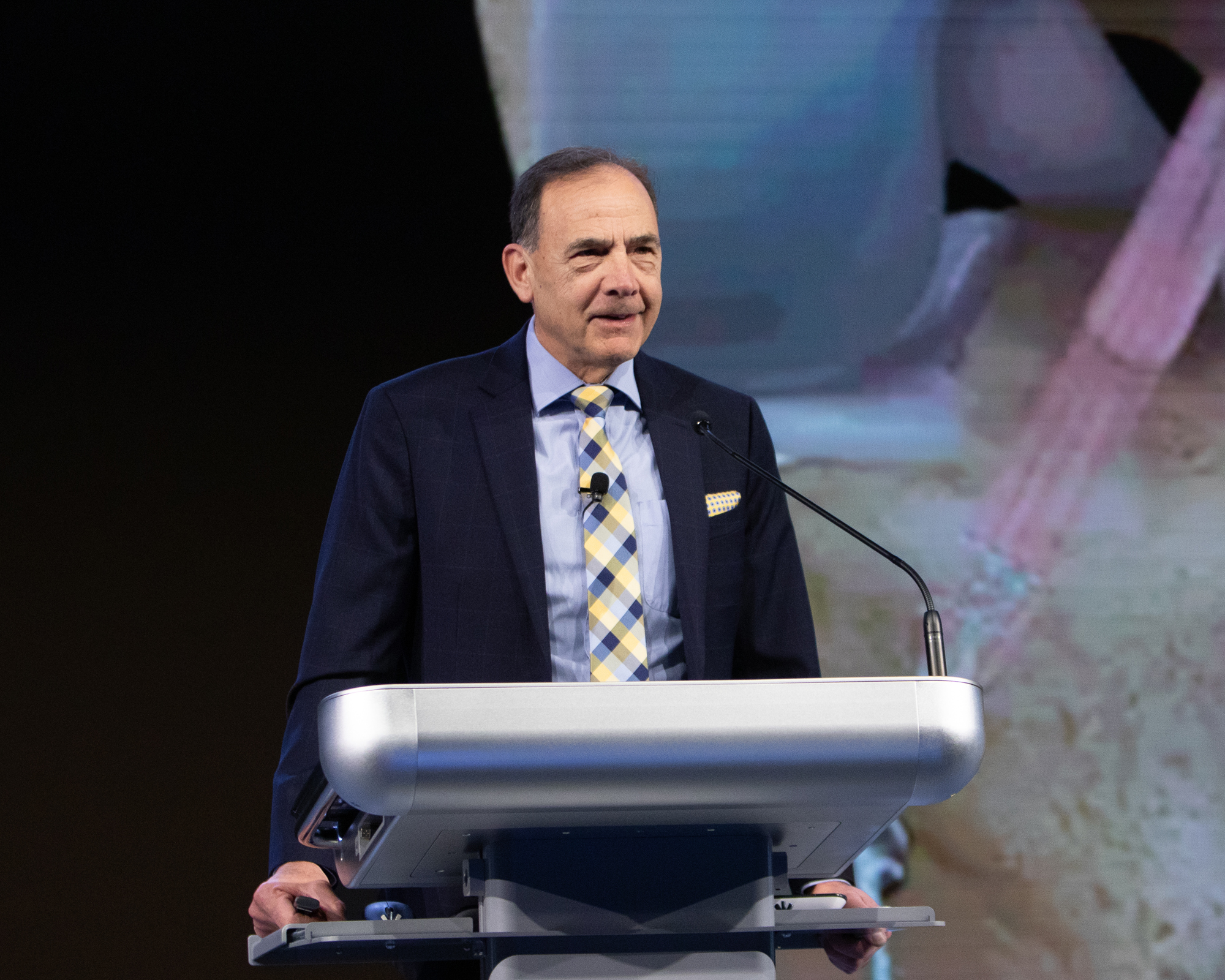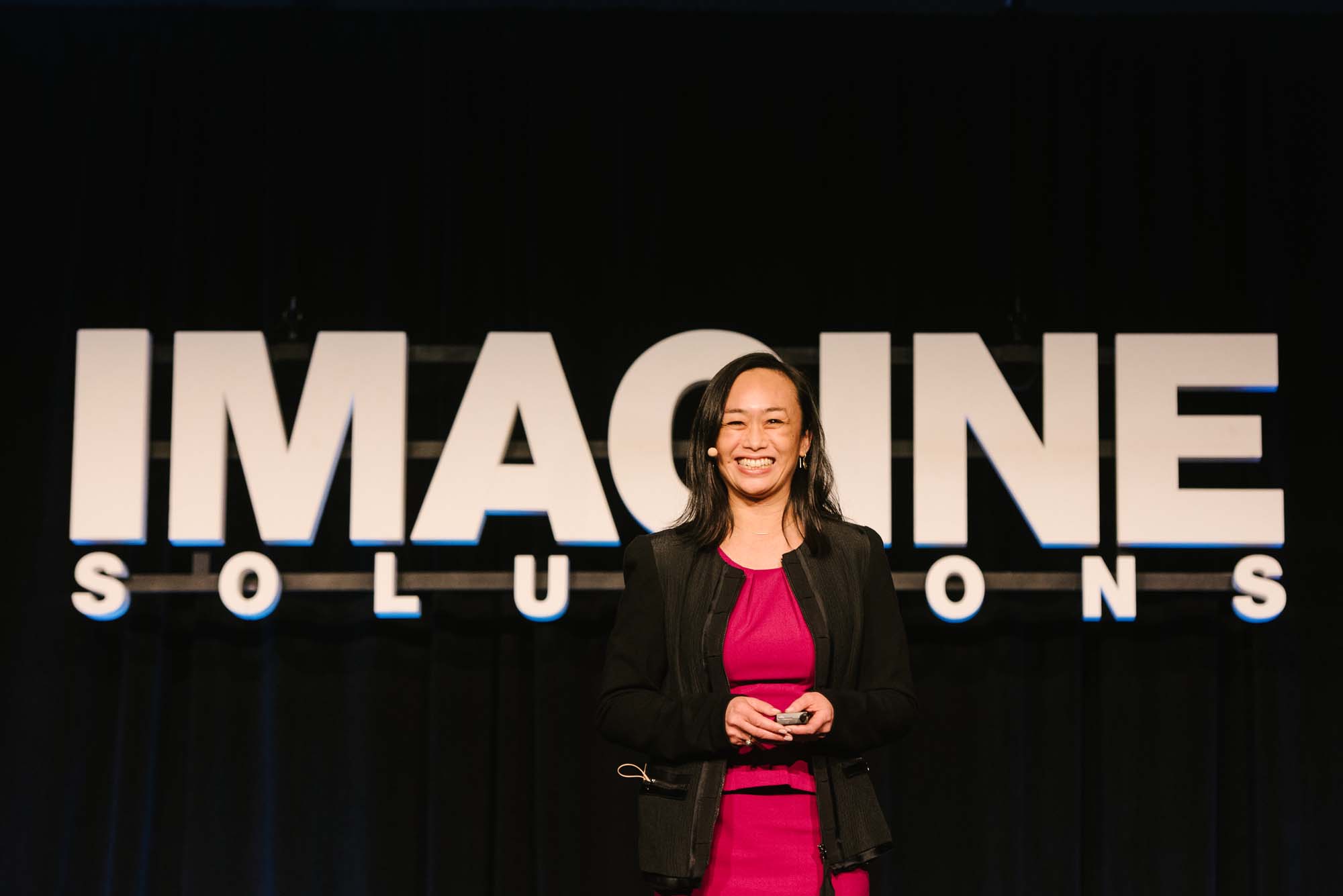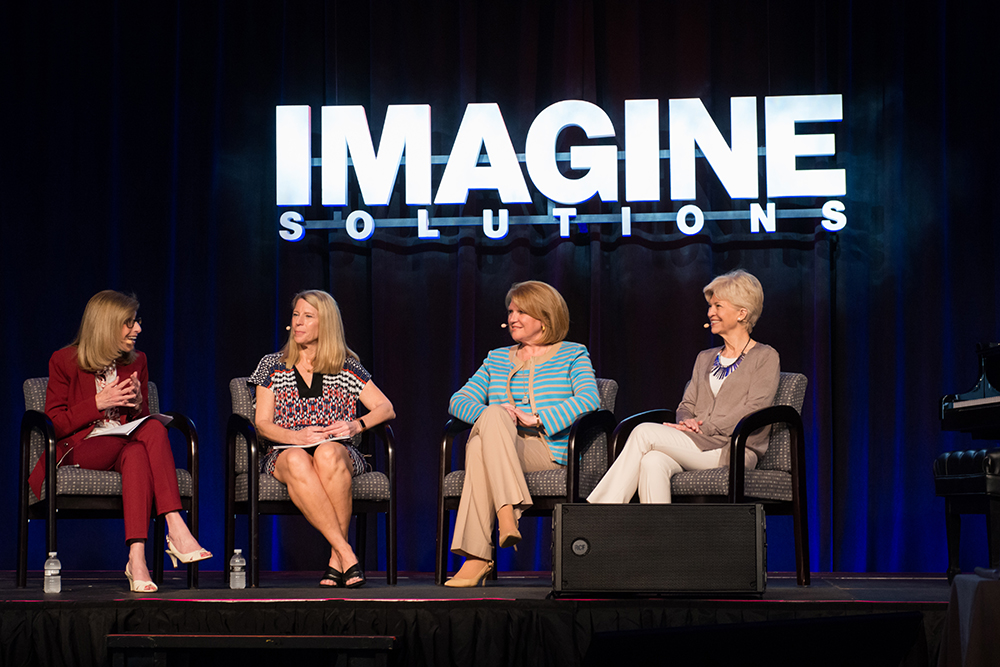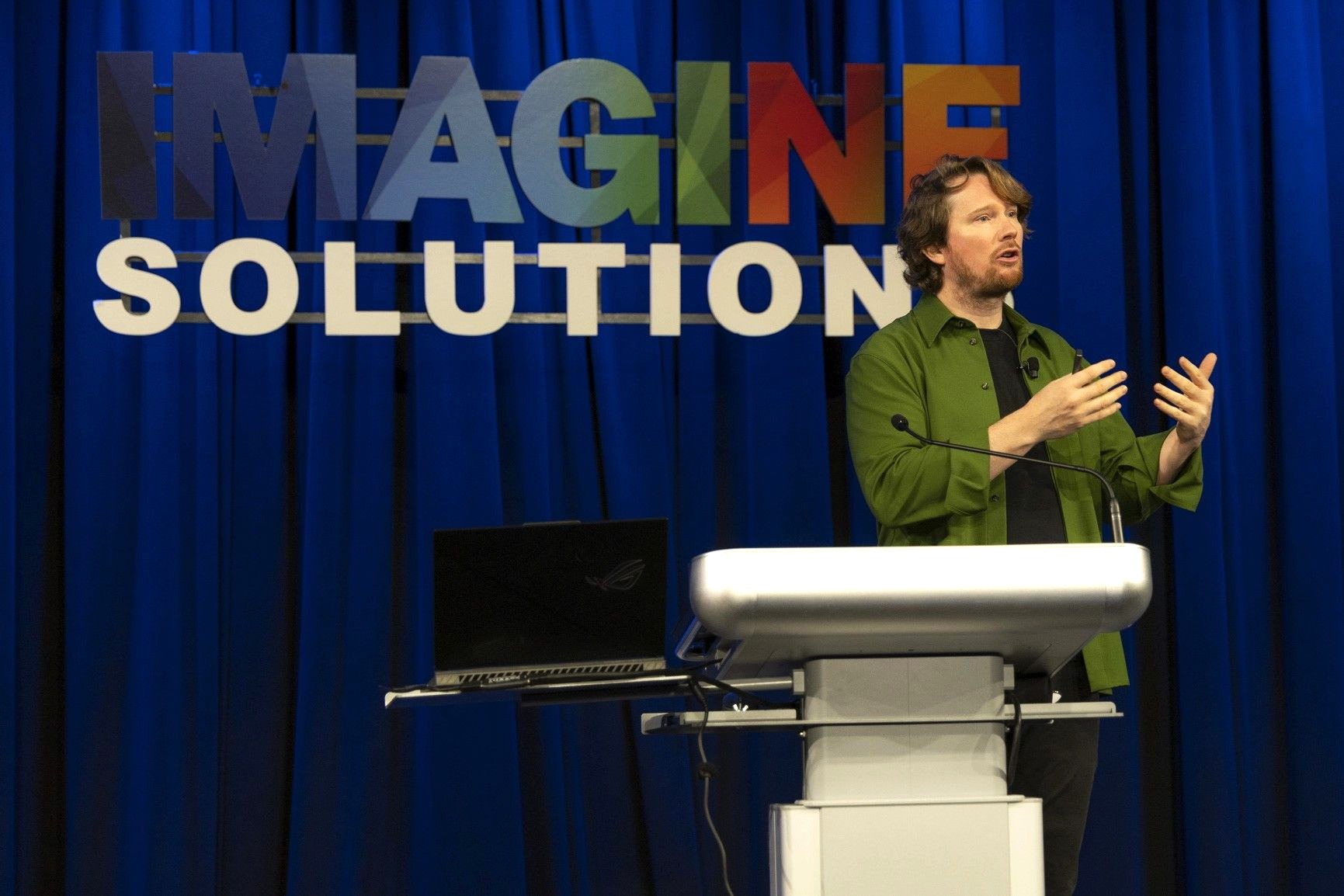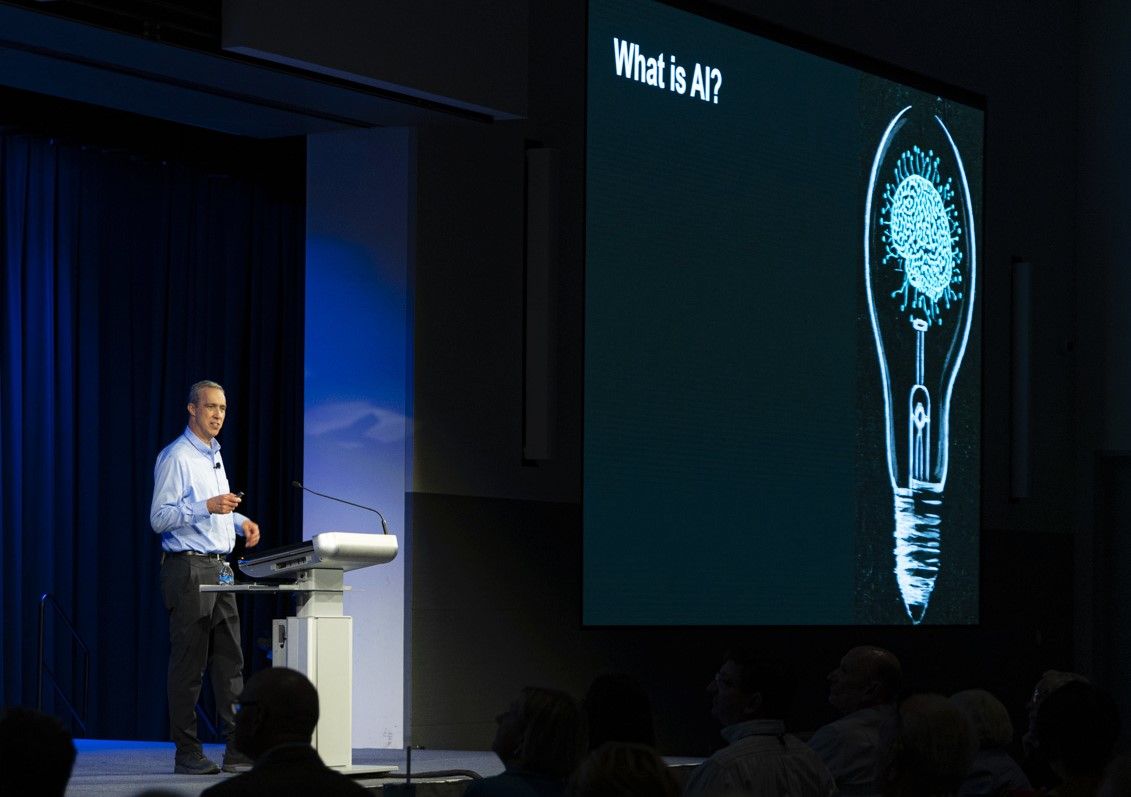A World Leader in Scientific Breakthroughs
Chas Bountra offered a powerful and hopeful message about the future of medicine. As a renowned leader in drug discovery, he shared how bold collaboration and open science are accelerating treatments for cancer, Alzheimer’s, and other devastating diseases. With humility and clarity, Bountra emphasized the importance of global partnerships and transparency in making medical breakthroughs accessible to all. His talk was both inspiring and deeply informative—reminding us that the path to healing lies in shared purpose, innovation, and compassion.
00.00
[Music] next we will meet Chaz Bontra He is an innovation leader solving the world's biggest challenges He spearheads the collaborative efforts across Oxford's science and technology departments uniting the brightest minds to tackle some of humanity's greatest scientific and medical challenges He is the pro- vicechancellor of innovation at Oxford the world's top ranked academic institution And there he's currently collaborating with 30 pharmaceutical companies eight disease foundations more than a 100 academic labs worldwide to develop new drugs to address some of the world's most pressing health challenges Among his awards and accomplishments with which include the Order of the British Empire none may have been more impactful than his work to develop at speed a CO 19 vaccine that was delivered to two to three billion people Please
01.02
welcome to our stage Chaz Bontra Thank you very much Thank you man Well ladies and gentlemen good afternoon How on earth do I follow that one and the one that's coming after me Walter I mean he's one of the smartest people on the planet So Randy you've sandwiched me between these two exceptional talks So thank you for that Randy wherever you are Um where shall I start i'm a big worrier I worry about some of the big challenges that are facing patients and society and the planet What I'll do in the next 20 minutes is share with you some of my
02.01
worries and I'm sure you worry about the same things I'll share with you some of the things we've done in Oxford and if there's time I'll share with you some anecdotes at the end So three big worries and I'd put them into three categories My research is in health care so I worry a lot about that I can talk for hours on that but I won't I'm desperately worried about the climate emergency and I'm extremely worried about growing inequality So let me just talk about health care Now I apologize some of the figures I'm going to give are UK but uh in the UK our population is 66 67 million So we're about a fifth of the size of the US So in the UK in the next 12 months 350,000 people will get diagnosed with
03.03
cancer That's a thousand people every day that's one person every 90 seconds And half of us in this room during our lifetime will have a diagnosis of cancer We've been waging war on cancer for decades since Kennedy started it And there are still many cancers that frankly are death sentences Ovarian cancer esophageal cancer pancreatic cancer etc I worry a hell of a lot about dementia Alzheimer's disease Parkinson's disease So in the UK we have 850,000 people with dementia In 2050 we will have 2.1 million people with dementia All of us who live to more than 80 one in six of us will have dementia And if you live to more than 90
04.00
more than 100 that incidence just goes up We've had a couple of drugs launched in the last couple of years but they only have marginal efficacy in the early stages They certainly don't slow it down or prevent it Mental health we've heard about today It was a massive issue before the pandemic It's become an even bigger issue post pandemic The incidence of anxiety eating disorders substance abuse alcohol abuse is literally just shooting up It's estimated that 20% of us during our lifetime will have some sort of depressive episode Husseini Mani he used to work at the NIH and then went to J&J He now has a position in Oxford He sent me some figures over the weekend In the US there are 45,000 suicides every year
05.02
In Europe there's 93,000 suicides every year These are staggering figures aging societies We've got them all over the world In the next 20 years there's going to be a doubling in the number of pensioners with diabetes and there's going to be a tripling in the number of pensioners with cancer We're becoming resistant to existing antibiotics Across the world a million people a year are dying because they are resistant to existing antibiotics Can you imagine going into a hospital and you get a minor infection and you don't come out that's what's happening And it's not just happening in India or Africa and South America It's happening in Europe and it's happening in North America We need a new generation of antibiotics Rare
06.02
diseases We call them rare diseases because there's not many patients with these diseases But altogether there are 7,000 rare diseases If you add up all the patients it's more than 350 million patients 30% of those kids do not reach the age of five It can take six to eight years to get a diagnosis and 95% of them have no treatment Can you imagine being a parent of a child with a rare disease and there is no treatment these are the challenges that are facing us The climate emergency is a magnitude bigger We heard a brilliant talk from Ken and Christine earlier on and they shared some of their statistics and we've all seen what's happened in the past few years the fires in Australia in Canada in California in Brazil the
07.03
flooding in New York or New Orleans or London or Germany Last January January 24 my climate colleagues were telling me that January 25 was going to be cooler than January 24 It turned out January 25 is the hottest January on record This is not something that we need a solution for in 50 years or 100 years If we don't come up with a solution pretty quick it's going to be a disaster These changes are irreversible And Christine and Ken touched on it beautifully pollution across the planet It's not just breathing air in in Delhi is a nightmare It's not just pollution in the air It's pollution in land and pollution
08.00
in sea We are messing up our planet And these changes are irreversible As a consequence of these climate changes in the next few decades we're going to see migration on a scale we've not seen before It's not surprising if you cannot provide shelter energy security food water for your family you will move and that's what's going to happen So big challenges inequality you know Oxford is a tiny town but if you live in an affluent part of Oxford or a poor part of Oxford there's a difference in life expectancy of more than a decade If you look at inequality within a country or inequality across the planet it's even greater And inequality is always a bad thing So we have big challenges Health
09.03
care climate emergency inequality So what have we been doing about it so I'll share with you three stories that things that we've done in Oxford So I used to work at Glaco Smith Klein and one of the things one of the reasons I left Glacos Smith Klein was because I was frustrated when I looked across the pharmaceutical industry Most pharma companies were working on the same disease They were working on the same targets or ideas and they were doing all of this in parallel in secret So you could have 20 companies working on Alzheimer's on exactly the same idea and they all work on the same idea because they all read the same literature They go to the same conferences and they talk to the same opinion leaders But the problem is that most of
10.00
the ideas that we work on in the lab when we take them into the clinic and I think Ed touched on it this morning the failure rate is more than 90% I've heard figures as high as 95% So most of our ideas when we take them into the clinic after seven eight nine years they fail So you can imagine if one company fails the other 19 companies doing exactly the same are going to fail as well It's a horrendous waste of money and resources and time when we desperately need new medicines So when I moved back to Oxford in 2008 I decided I was only going to work on completely novel ideas I wasn't going to do anything that there was already a 100 publications and there's already 20 companies working on it I wanted to open up new areas of biology So I worked on completely novel ideas or novel genes And for those genes what we did was we
11.02
purified the human protein And I don't care about rats and mice because I don't think they predict what happens in humans I was only focused on human proteins We worked out the structure of those proteins We developed assays for those proteins We generated small molecule inhibitors for those proteins And we generated antibodies for those proteins These tools what I did was I said "Right I'm going to share them with the world." so that we gave them away to anybody who wanted them in academia anybody in biotech and anybody in pharma As a consequence we ended up collaborating with more than 300 academic labs all over the world And academics as you know all they care about is publications So if they get a new tool they will put it into their assay they'll get a cool publication and that's good for their next grant etc This was a way of crowdsourcing science
12.02
But many of the tools that we gave away to companies as a consequence some of them terminated some of their existing programs and they started new programs based on our tools and some of our academic colleagues using our new tools and some of the data they generated they started new companies So by sharing these novel tools with the world we accelerated innovation we accelerated translation we accelerated proprietary programs and we accelerated the creation of new enterprises That was the impact of open science And again Ed touched on what he was doing around open science this morning with his reagents So that's one example The second story is in the pandemic So cast your mind back five years So in the UK at the start of the pandemic our roads were empty the
13.02
department stores were empty the stations were empty the airports were empty everybody was working from home the hospitals were full Those were the only things that were full Every evening on the news we were watching doctors and nurses cry because tens of people were dying in their hospitals every day We had no vaccine We had no treatment whatsoever for COVID 19 And what my colleagues did so John Bell who was the Regis Professor of Medicine an absolutely brilliant man if ever you meet him please go and shake his hand He is absolutely phenomenal He's now the president of the Ellison Institute in Oxford Louise Richardson who was the vice chancellor at the time again a visionary lady now the president of the Cariegi Foundation in New
14.00
York And then of course Adrien Hill Sarah Gilbert and Andrew Pollard absolute geniuses at what they did in the pandemic So what these colleagues did was they partnered with industry Astroenica They partnered with the UK government UK regulators and funders like Welcome and Gates and they partnered with the serum research institute in India and they worked together and had a shared vision We're going to generate a vaccine for COVID 19 as quickly as possible We don't want to make any money out of it we're going to give this vaccine away at cost price So the cost of manufacture plus the cost of distribution And together they generated a vaccine in nine months Something that would normally take nine years That vaccine we pushed into three and a half billion arms and we helped the world out of a pandemic That vaccine saved more than
15.02
six That vaccine saved more than six and a half million lives across the planet It saved more lives than either the FISA vaccine or the Madna vaccine This is the power of working together and having a shared vision and not worrying about commercial agendas but just pooling resources and focusing on the end goal The third example was again in the pandemic my two genius friends Martin Landry and Peter Hby What they did was they said are there any existing drugs that have any efficacy in treating COVID 19 so the drugs that are already out there for rheumatoid arthritis or asthma or whatever do any of them have any benefit
16.00
in COVID 19 so what they did was they used the resources in the UK inside the NHS the National Health Service So they worked with lots of clinicians across the UK lots of hospitals Of course we had thousands of COVID patients and they took some of these existing drugs and rapidly tested them literally in weeks They tested them in thousands of patients to see if they had any efficacy And the first thing they looked at was that hydroxychloricquin the antimmalaria drug had absolutely no efficacy despite what the current in resident in the White House used to say And then dexamethasone this cheap generic anti-inflammatory that's found in every pharmacy store in in the world that had remarkable efficacy that worked and that saved more than a million lives across
17.00
the planet So three stories of things we've done in Oxford Let I was talking last night to Brad I don't know if Brad is here Brad are you here where are you i can't see him Anyway Brad said to me last night he said "Chaz why do you do this?" And I shared with him three anecdotes and I'll share those with you now About 20 years ago I was working at GSK Glaco Smith Klein and I went to visit a care home And in this care home were lots of patients with Alzheimer's or Parkinson's And I saw this one patient in a side room He was in his late 60s early 70s And he was just staring at the wall He didn't even acknowledge me His daughter was sitting in the room with him So I spoke to his daughter for about five minutes and just as I was leaving she
18.03
grabbed my hand and said "Please help my father." And I thought to myself "It's too late for your father." The tragedy is ladies and gentlemen if that happened to me today I would say exactly the same thing I am sad that we have not made more progress in the past 20 years Second anecdote About 10 years ago a lady who lives in Bath so Bath is about 60 miles from Oxford came to visit me and she her daughter had a rare GI stromal tumor So the daughter didn't come the mother came Her daughter's physician lived in Cambridge so he also came And so the two of them were sitting in my office and
19.02
the mother started to cry She was crying because there was no treatment for her daughter and she had no hope and frankly she was just watching her daughter die I said to the mother I said "How is your daughter doing?" She said "My daughter is 21 years old and they've just removed the hole of her stomach." At the time my daughter was 21 and I thought to myself how on earth does any parent cope with that a couple of years later on a Sunday afternoon she sent me an email saying "My beautiful precious daughter has just died." I have to say for several weeks I felt quite awful because she came she asked for help and we couldn't deliver The third story was about five years ago
20.01
on a Sunday morning I was giving a public lecture in Oxford and at the end of this lecture this lady came to me and she said "Professor Bantra my daughter died with a brain tumor last year If you want to study her brain this is where you can get it from." and she handed me a slip of paper and on this paper was her daughter's name her date of birth the day she died and where her brain is stored My wife came to pick me up after that Sunday lunchtime and I said to my wife I've just had a complete stranger come up to me and offer me the brain of her dead daughter The lesson from this is parents relatives loved ones as well as patients they are desperate and they're
21.00
looking to people like us for hope and solutions and new treatments and help So ladies and gentlemen to sum up across the planet we are facing enormous challenges No one individual no one institution no one organization no one country can tackle these problems on their own We have to open our arms and embrace each other and pull our resources pull our infrastructure pull our expertise and get scale and get urgency It's the only way Thank you very much Professor Bantra would you wait and let me ask you just one question going back deeper into the beginning of your conversation here You talked about the
22.00
climate crisis which you see obviously as clearly as an existential threat uh to humanity There is obviously no single so-called silver bullet that will make the climate challenge go away But if you had to identify one or two things that we could do now to ameliorate the damage that we're doing to the climate now what would those one or two things be i think unfortunately Tyler it's we don't have time just to do one or two things I think we have to throw the kitchen sink at it We need green energy whatever form we can get and we need to try everything We need carbon capture We need biodiversity We need food We need water production We need to tackle pollution We need to do all of these things No one thing is going to do it on its own We've got to tackle them all And this is why we've got to work together
23.01
In the COVID pandemic which was again was a crisis you know many colleagues said we're never going to get a vaccine for COVID 19 but it turned out we were lucky and we managed to get quite a few Um and that was luck And so I think you know when you're facing a crisis like this we literally have to throw everything at it and you can't count on luck No Professor Berra thank you so much Appreciate it Thank you

